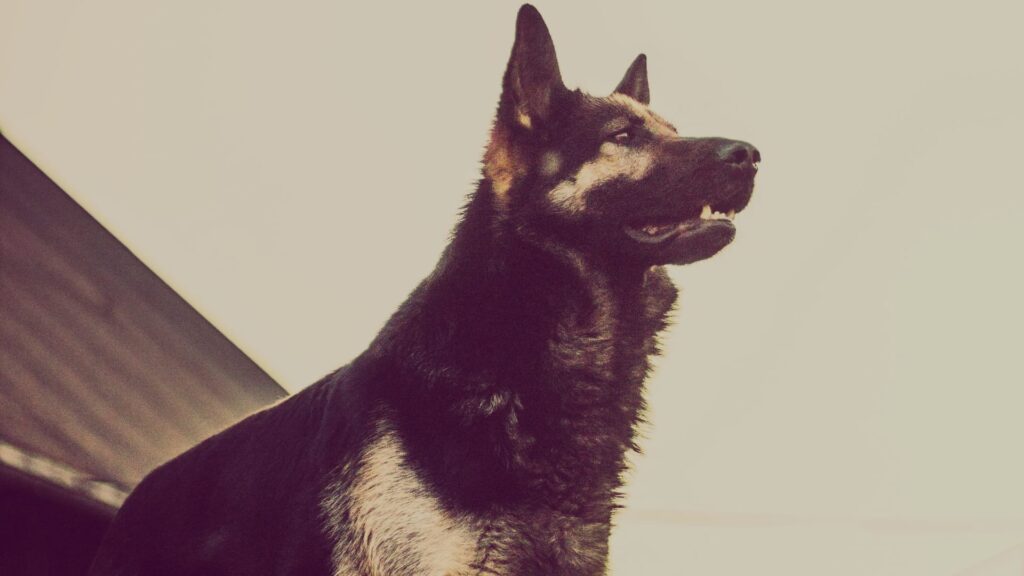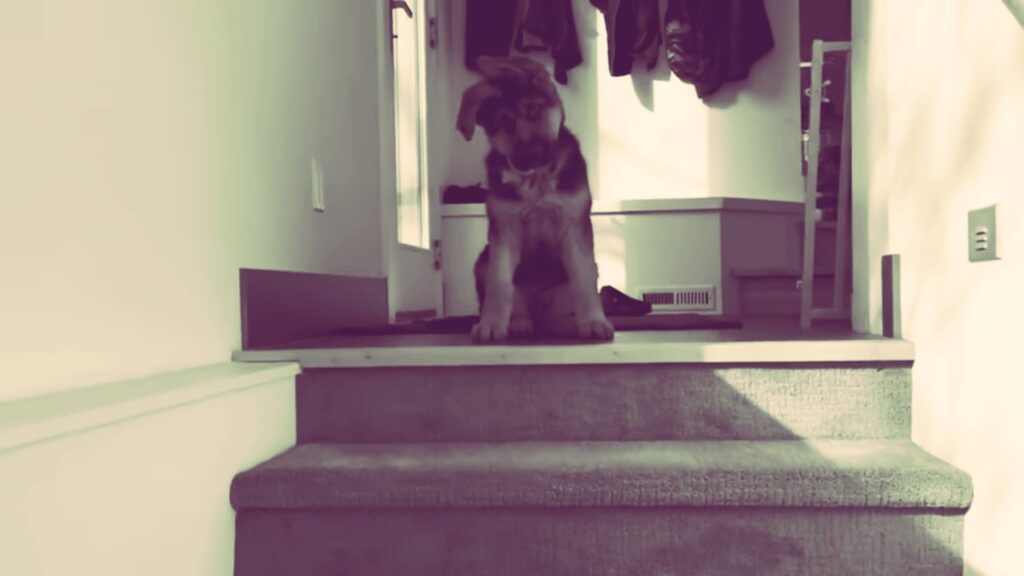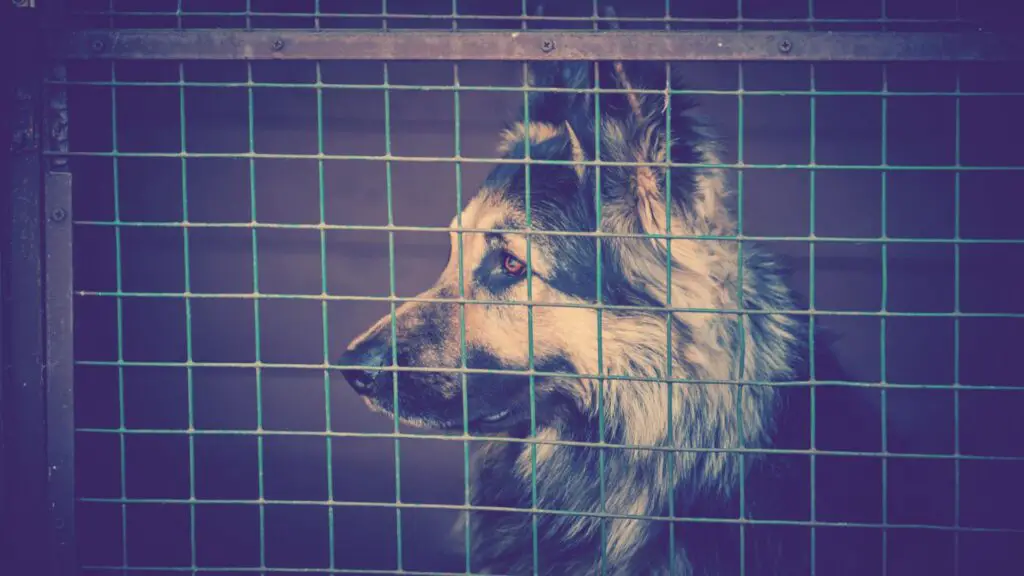As owners of German Shepherds, it is important every day to learn a little more from them, beyond the common information.
These dogs are relatively new, their origin dates back to 1899, they are part of the herding group because they were originally developed to gather and watch over sheep. So there is still much to learn about this magnificent breed.
In this opportunity, we will answer some common questions that revolve around these beloved dogs.
Why German Shepherd Puppies Breathe Hard?
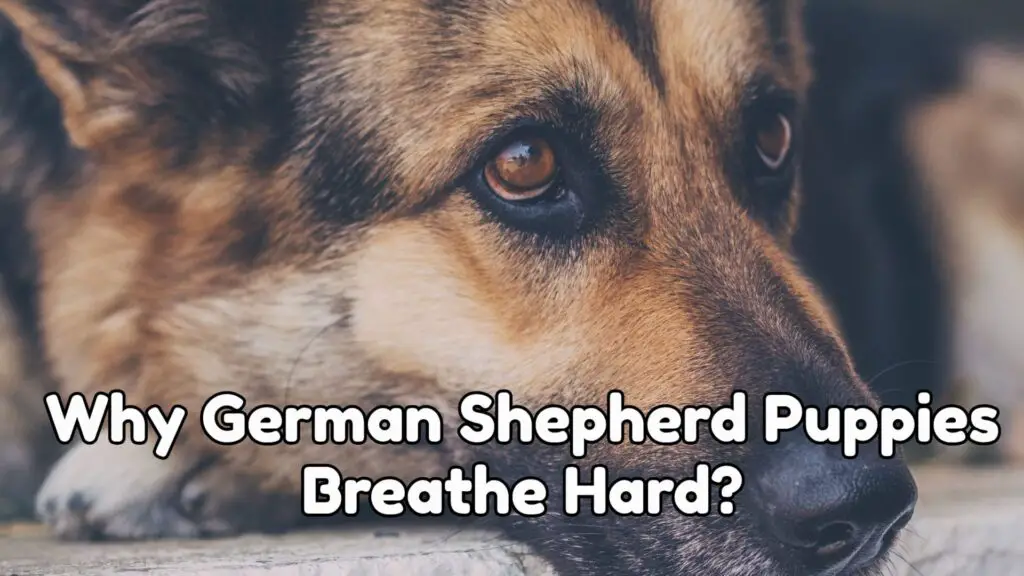
Have you ever noticed that when your German Shepherd puppy sleeps it breathes differently? Many owners are afraid that it could be a sign of something bad, but this has a simple explanation.
It is normal for puppies to breathe fast when they are sleeping. If you have the impression that your dog is breathing fast, faster than normal, the first thing to do is to check.
But first, you should know that the normal breathing of the dog oscillates between 10 and 30 breaths per minute. In the case of younger dogs or puppies, their breathing is usually faster than that of an adult dog, in the range of 15 to 40 breaths per minute. This is known as “rapid puppy breathing.”
So, it is common for puppies to breathe heavier in their sleep. Sleep is an important time in a dog’s development, and breathing is part of that process.
How to detect breathing problems in my GSD?
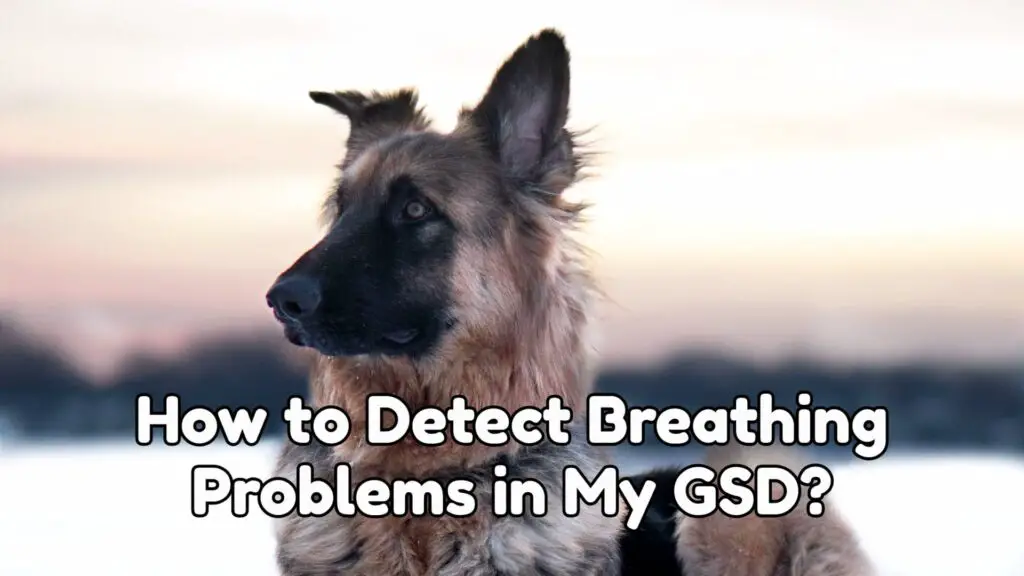
To find out if your dog is suffering from any breathing problems you have to detect any of these symptoms:
- When the dog is breathing, it makes very loud sounds and its abdomen and chest move intensely.
- Its nasal cavities open too much when breathing.
- When you notice that it changes its posture, and you hear its breathing different when it is in one another posture.
- If it breathes with its mouth open, it may find it difficult.
- When breathing is more rapid than usual.
- It has a constant or strong cough.
- If your dog is breathing heavily while it is awake in normal or resting conditions, then you should take it to the vet, since it could mean something more serious, such as a respiratory tract disease.
Not all German Shepherds will get any or all of these symptoms, but it is important to be aware of them in order to prevent or detect some problems early.
As we saw earlier, breathing hard is kinda normal, but also can be a symptom or in other words, a signal from our GSD that it has the urgency to do its business.
This makes us ask the following question:
How Long Can a German Shepherd Hold Their Pee?
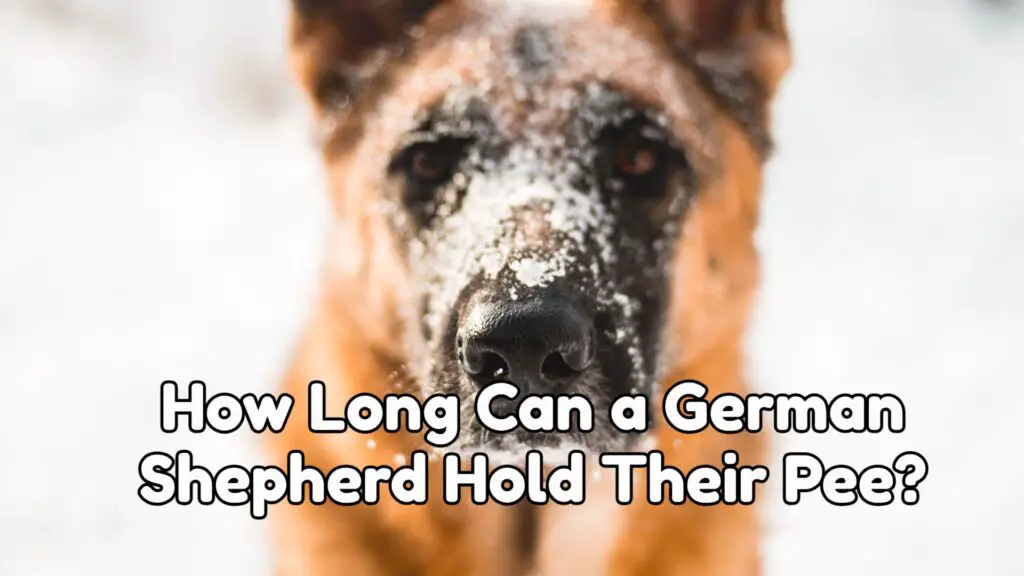
At 7 weeks a puppy is unable to control its needs because it has not developed its entire urinary or evacuation system, that is, physiologically it is impossible for it to control when it can pee.
A two-month-old puppy can hold its bladder for up to 3 hours. The time increases by one hour per month of age. At 6 months of age, it can hold its bladder for 7-8 hours (A working day!). However, no dog of any age should wait more than 8 hours!
Dogs tend to have an evacuation process of 8 to 10 hours, at most. Although this process depends on different factors such as the health of the dog, age, personality, it’s feeding, and the amount of water it consumes.
It also depends on the breed, since hounds, breeds of guard dogs, and Shepherds, as in the case of GSD, can last between 10 and 12 hours.
A healthy adult dog will urinate three to four times a day distributed at intervals of every six to eight hours.
While we now know how much can our GSP be without making pee, some people cannot give up their attention (especially if our German Shepherd is a female) that their rear legs look kind of “weird”, but why is so? Is it bad?
Why Do German Shepherds Back Legs Look So Different In Some Dogs?

It All Begins In Their Origins As A Separate Breed.
German Shepherds are generally healthy dogs, but like all breeds, they are prone to certain diseases and pathologies.
GSD began to breed and select from southern and central German herding dogs in 1899. The objective of these crosses was to obtain a strong and resistant working dog.
However, these dogs also suffer from other certain disorders. These are usually associated with this breed. Some of the problems seen more regularly in the German Shepherd are much less common in any other dog.
This race has undergone several transformations.
Have you ever noticed that the GSD for shows is very different from the original breed made for sheepdog work?
While some breeders are against the changes in the physical characteristics of these dogs and try to preserve the original German Shepherd line, others, are focused on creating the ideal dog that is attractive for dog shows.
The dogs used for the show are larger and describe a silhouette that is quite sloped down from the shoulders to the end of the back, with hips and knees approaching the ground making their hindquarters appear more angular.
These physical characteristics so different from the original GSD come from a few influential people who are considered “breed authorities” who promoted this characteristic in dog shows.
The reasons why these people approved these new characteristics are due to the dog shows in which dogs with these characteristics of back and sloping back legs were shown.
Thanks to some victories, these characteristics soon became the norm. Breeders began to breed based on the appearance of the dogs that earned the most the competitions, making the breed evolve accordingly.
Although these characteristics are not considered part of a “disease”, they do cause different problems for the dog in the future. Unfortunately, the sloping German Shepherd is much more prone to joint problems, hip dysplasia, and many more health problems due to its unnatural back.
I hope that this article has made you know a little more about your German Shepherd and answered some quite common questions.
German Shepherds are really interesting dogs, the more we know about them the better we can take care of them, understand them, and create a deeper bond.


